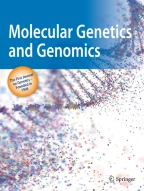Abstract.
Cloning of genes encoding polyketide synthases (PKSs) has allowed us to identify a gene cluster for ML-236B biosynthesis in Penicillium citrinum. Like lovastatin, which is produced by Aspergillus terreus, ML-236B (compactin) inhibits the enzyme 3-hydroxy-3-methylglutaryl-coenzyme A (HMG-CoA) reductase. Genomic sequencing and Northern analysis showed that nine predicted genes for ML-236B biosynthesis were located within a 38-kb region and were transcribed when ML-236B was produced. The predicted amino acid sequences encoded by these nine genes, designated mlcA–mlcH and mlcR, were similar to those encoded by the genes for lovastatin synthesis, and were therefore assumed to be involved either directly or indirectly in ML-236B biosynthesis. Targeted disruption experiments provided evidence that two PKS genes in the cluster, mlcA and mlcB, are required for the biosynthesis of the nonaketide and the diketide moieties, respectively, of ML-236B, suggesting that the gene cluster as a whole is responsible for ML-236B biosynthesis in P. citrinum. Bioconversion of some of the predicted intermediates by an mlcA-disrupted mutant was also investigated in order to analyze the ML-236B biosynthetic pathway. The molecular organization of the gene cluster and proposed functions for the ML-236B biosynthetic genes in P. citrinum are described.
Similar content being viewed by others
Author information
Authors and Affiliations
Additional information
Electronic Publication
Rights and permissions
About this article
Cite this article
Abe, .Y., Suzuki, .T., Ono, .C. et al. Molecular cloning and characterization of an ML-236B (compactin) biosynthetic gene cluster in Penicillium citrinum . Mol Gen Genomics 267, 636–646 (2002). https://doi.org/10.1007/s00438-002-0697-y
Received:
Accepted:
Issue Date:
DOI: https://doi.org/10.1007/s00438-002-0697-y
